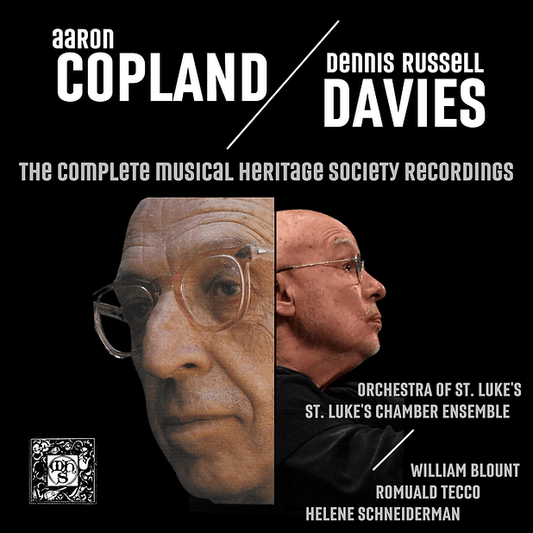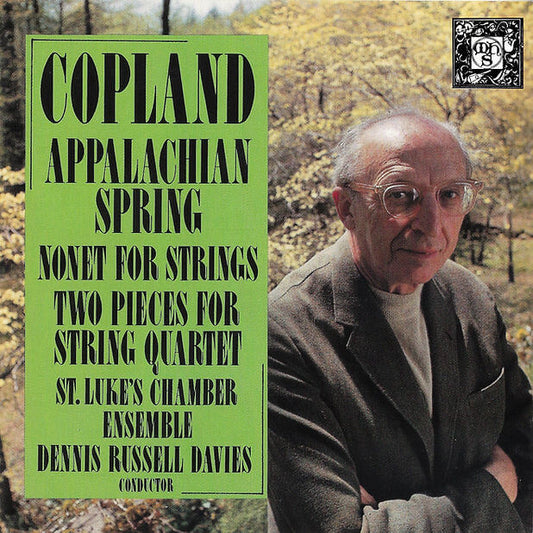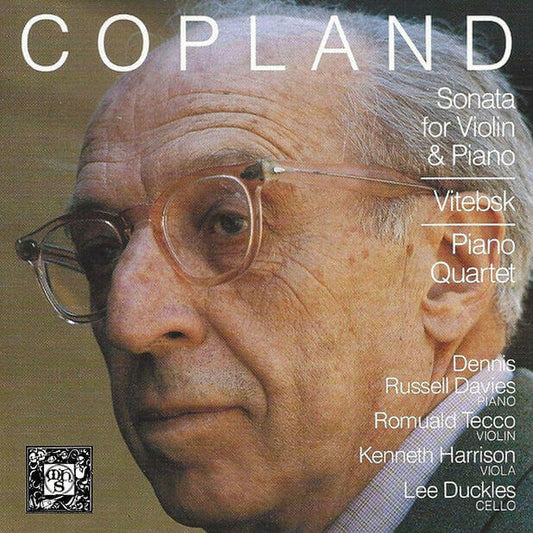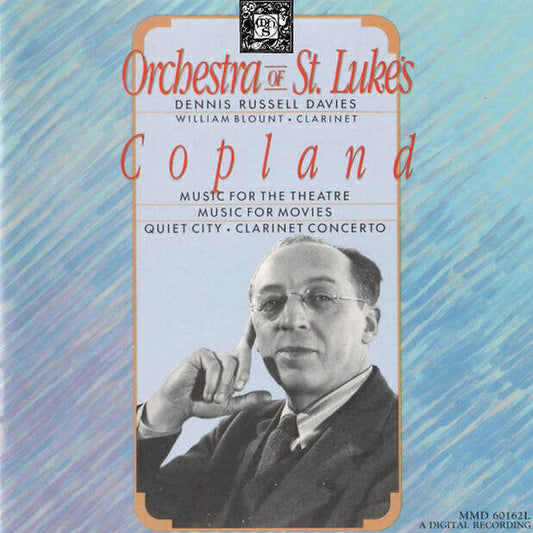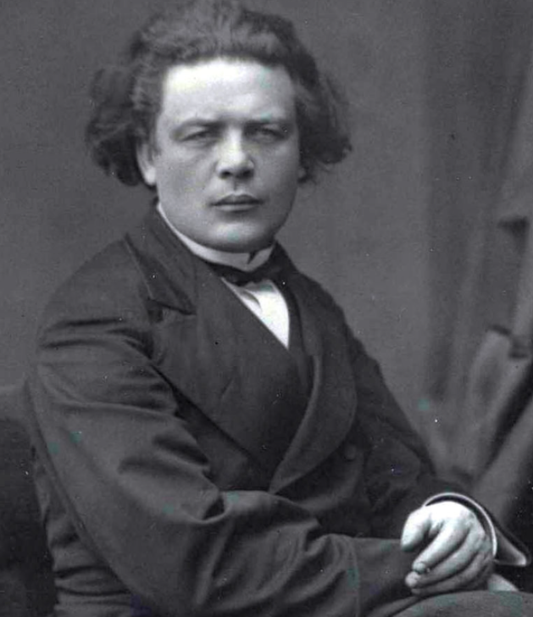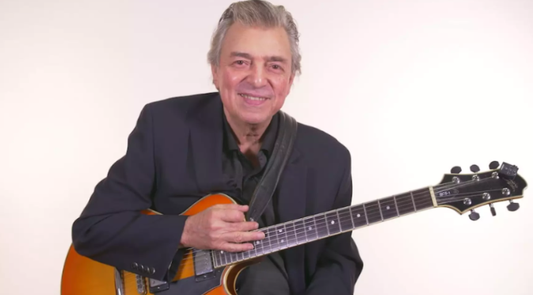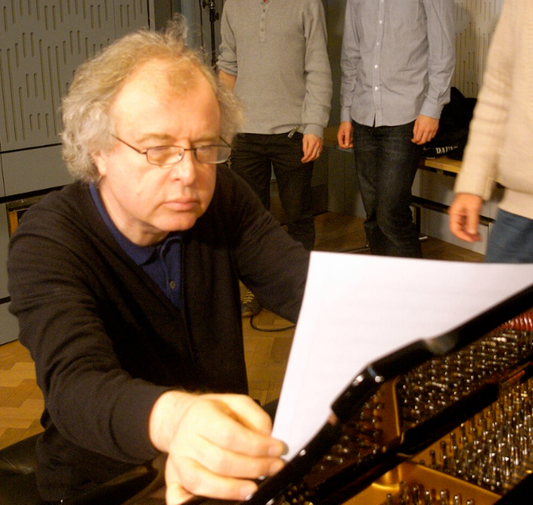Collection: AARON COPLAND (1900 – 1990)
Aaron Copland (November 14, 1900 – December 2, 1990) stands as one of the most influential and celebrated figures in American classical music, often dubbed the "Dean of American Composers." Over a career spanning more than half a century, he forged a distinctly American musical identity, moving beyond European traditions to create a sound that evoked the vast landscapes, folk spirit, and vibrant energy of the United States. His work, encompassing ballets, orchestral pieces, film scores, and more, made classical music accessible and resonant for a wider American audience.
Born in Brooklyn, New York, to Lithuanian Jewish immigrant parents (whose surname was originally Kaplan), Copland's early musical exposure came from his older sister Laurine, who gave him piano lessons. His decision to become a composer crystallized around age 15 after attending a concert by pianist Ignacy Jan Paderewski. He pursued formal studies with Rubin Goldmark, a respected but conservative teacher. While gaining a solid foundation, Copland felt constrained by Goldmark's adherence to 19th-century traditions and sought out more modern sounds on his own.
A pivotal moment came in 1921 when Copland traveled to France to study at the American Conservatory at Fontainebleau. Initially studying with Paul Vidal, he found him too similar to Goldmark. On a classmate's suggestion, he began studying harmony with Nadia Boulanger. Despite initial reservations about studying with a woman – a novel idea at the time – Copland was profoundly influenced by Boulanger's brilliant mind, rigorous teaching, eclectic tastes, and, crucially, her encouragement to cultivate a uniquely American voice. His three years in Paris exposed him to Stravinsky, French modernism, and jazz, elements he began incorporating into his early works. Boulanger's belief in him was instrumental; she commissioned his Symphony for Organ and Orchestra, arranging for its premiere upon his return to the US in 1925, which effectively launched his career.
Back in New York, Copland initially composed in a modernist style, incorporating jazz rhythms in works like Music for the Theater (1925) and the Piano Concerto (1926). However, the Great Depression highlighted the need for music that could connect with a broader public. Inspired partly by the German concept of Gebrauchsmusik ("music for use") and his own travels (especially to Mexico, which inspired El Salón México in 1936), Copland deliberately shifted towards a more accessible, "vernacular" style in the mid-1930s.
This populist period, primarily the 1930s and 1940s, produced his most famous and enduring works.[2] He began integrating American folk materials – cowboy songs in the ballets Billy the Kid (1938) and Rodeo (1942), and the Shaker hymn "Simple Gifts" in the Pulitzer Prize-winning ballet Appalachian Spring (1944), choreographed by Martha Graham. His signature sound emerged: open, slowly changing harmonies often built on fourths and fifths, evoking spaciousness; clear textures; syncopated rhythms derived from jazz and folk dance; and melodies capturing the American spirit.[5] During World War II, he contributed patriotic works like Lincoln Portrait (1942) and the iconic Fanfare for the Common Man (1942), originally commissioned by conductor Eugene Goossens as a wartime tribute. His Third Symphony (1946), incorporating the Fanfare, is considered by many a cornerstone of American symphonic literature.
Copland's influence extended far beyond composition.[4] He was a dedicated teacher (notably at Tanglewood), lecturer, conductor (especially of American music), and writer, publishing influential books like What to Listen For in Music (1939). He actively promoted contemporary music through initiatives like the Copland-Sessions Concerts and co-founding the American Composers Alliance. His film scores earned him recognition, including an Academy Award for The Heiress (1949).[3] Other significant works include the Clarinet Concerto (1948, for Benny Goodman), the song cycle Twelve Poems of Emily Dickinson (1950), and the opera The Tender Land (1954).
In his later years, Copland explored serial (12-tone) techniques in works like Connotations (1962) and Inscape (1967), though these pieces met with less popular acclaim than his earlier populist works.[7] He largely ceased composing after the early 1970s due to failing health, possibly Alzheimer's disease, but remained a revered public figure.
Aaron Copland received numerous honors, including the Presidential Medal of Freedom (1964), the Pulitzer Prize (1945), and the National Medal of Arts (1986). His true legacy lies in his creation of a musical language recognized worldwide as distinctly American, capturing the nation's character with clarity, optimism, and enduring appeal. He generously supported future generations by establishing the Copland Fund for Music to support American composers.


